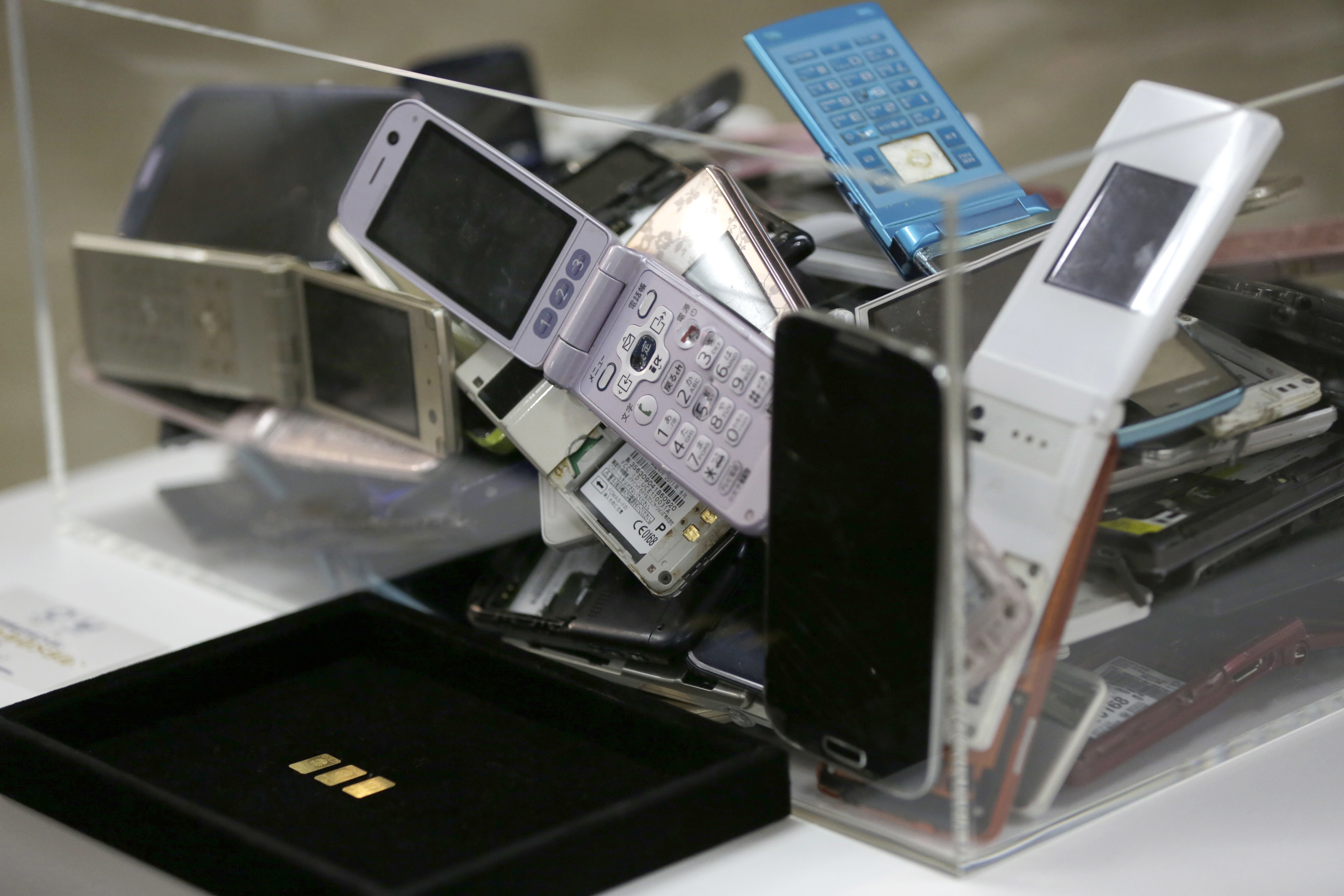
Gold tablets of 3 grams, left, which is able to be recycled from 100 mobile phones, are shown as example in Tokyo, Saturday, April 1, 2017. Organizers of the 2020 Tokyo Olympics began Saturday collecting discarded electronic devices that will be used in the production of the medals to be awarded to athletes. The organizing committee aims to collect eight tons of raw metal which will yield around two tons of pure metal, enough to produce 5,000 medals for the Tokyo Games. (AP Photo/Eugene Hoshiko)
TOKYO — Organizers of the 2020 Tokyo Olympics have begun collecting discarded electronic devices that will be used in the production of the medals to be awarded to athletes.
Japanese Olympic swimmer Takeshi Matsuda and Paralympian Takuro Yamada attended a ceremony in downtown Tokyo on Saturday to kick off the campaign.
“It’s a great project that turns your old unused phones into athletes’ treasured medals,” said four-time Olympic swimming medalist Matsuda. “I’m glad that by participating in this project, anyone can take part in the Games.”
The organizing committee aims to collect eight tons of raw metal which will yield around two tons of pure metal, enough to produce 5,000 medals for the Tokyo Games.
Citizens are being asked to donate unwanted and obsolete electronic devices including smartphones, digital cameras and laptops.
Collection boxes have been set up throughout the country. The collection will end in the spring of 2019 or as soon as the eight-ton target is reached.